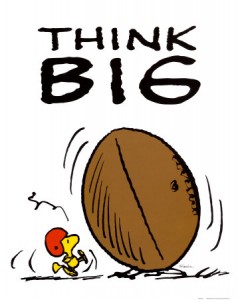This week’s HR carnival is going to be going up at EvilHRLady on Wednesday. The theme is “What were you doing five years ago?”, so I thought I would throw in a post to that effect. Nothing enlightening or exciting today, just a chance for me (and you) to reflect back on the amount of changes that five years can bring…
Five years ago, my life was radically different. I was still busy, but my focus was totally different from what it is today.
- I was thinking about running my first ultramarathon.
- I was helping to plan my wedding.
- I was doing manual labor during the day and going to school at night.
- I was a junior in college.
- I had only the vaguest sense of what this “HR” thing was.
- I had to turn down an unpaid HR internship because I needed the $$$ when I got married.
- I was living in my first house all by lonesome.
- I had never even read or thought about writing an HR blog.
At any point in the middle of the hustle and bustle of 2007 I could have made one or more decisions that totally changed the course of my life. And despite all of that, here I am today. Married. Kids. HR degree. Job in the HR/recruiting field. And blogging to my heart’s content.
So how did I make the leap? What was the secret ingredient?
I studied pretty hard in college, but I also did all the research I could on the people who were already working in HR. I surfed websites looking for an HR point of contact. Once I had that I would email them and ask a few questions about what it was really like working in the HR field. Some of that information helped me to write papers in my junior/senior years, but it also helped to 1) confirm my choice in professions and 2) give me as much of a realistic job preview as I possibly could get.
I’d have killed for some job shadowing opportunity, but between working 40-50 hours a week, going to school full time at night, and the rest of that list of daily tasks, I was just holding on by my fingernails.
In the latter half of 2007 I got a job for a company that ended up paying for my senior year of college in return for my indentured servitude for a year after I graduated. Working for that company was a so-so experience. Not bad, but not really great, either. I learned  a few things about good managers, poor planning/consideration for remote employees, and how team dynamics can influence the amount of work that gets accomplished.
The big takeaway
If I can give a piece of advice… Even if you’re in a position you don’t enjoy, you are learning something valuable. That might be how not to treat people or do business, but it’s still a learning opportunity. Looking back now I can see that every job I’ve held has taught me something about the right things to do. More importantly, it’s helped to teach me how to stay away from the wrong things.
All in all it is definitely tough to think about what life was like five years ago, but I can say with certainty that I am thankful for the experiences that I had leading up to this point. Each step (and misstep) has formed me into the person I am, and I wouldn’t have it any other way.
Enough about me! How about you? Where were you five years ago? Did you love/hate your job? Were you in college? Was there something interesting going on in your personal life? I’d love to hear about it!Â
 One of our core values at work is “provide innovative solutions that exceed expectations.” That might seem like a standard/blah kind of idea, but it plays out in a way that I haven’t encountered anywhere else I’ve worked. We have a “big ideas” database that allows employees to share ideas on anything they think might be valuable to the organization. We’ve had everything possible posted, from lucrative new product lines to a request for larger garbage bags in the kitchen (seriously!).
One of our core values at work is “provide innovative solutions that exceed expectations.” That might seem like a standard/blah kind of idea, but it plays out in a way that I haven’t encountered anywhere else I’ve worked. We have a “big ideas” database that allows employees to share ideas on anything they think might be valuable to the organization. We’ve had everything possible posted, from lucrative new product lines to a request for larger garbage bags in the kitchen (seriously!). What are the signs that a person is lying?
What are the signs that a person is lying? Helicopter parents at work-fight or submit?
Helicopter parents at work-fight or submit?
